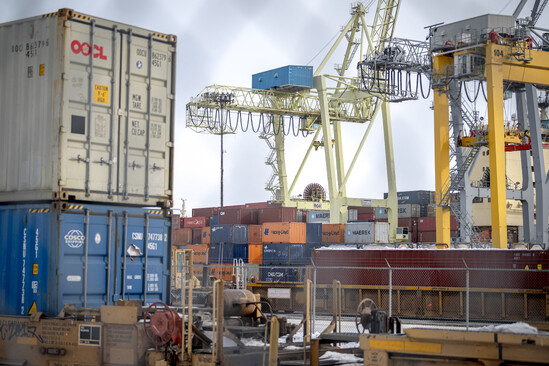North American Businesses Brace for Impact as U.S. Tariffs Trigger Global Retaliation

Businesses across North America are grappling with the ripple effects of new tariffs imposed by President Donald Trump, announced on Saturday. Set to take effect Tuesday, these tariffs are poised to disrupt key industries, including energy, housing, automotive, and alcohol.
The new trade measures include a 25% tariff on most goods imported from Canada and Mexico, along with a 10% levy on Chinese products. As America’s largest trading partners, these nations have responded swiftly with retaliatory tariffs, escalating tensions in the global market.
Industry leaders warn that these tariffs could drive up costs for manufacturers and consumers alike. The automotive sector, heavily reliant on cross-border supply chains, faces potential price hikes and production delays. Housing and construction companies are bracing for increased material costs, which could stall projects and inflate home prices. Energy firms fear disruptions in the supply of key components, while the alcohol industry anticipates higher prices on imported spirits and reduced exports due to foreign countermeasures.
Market reactions have been immediate, with fluctuations in stock prices reflecting investor concerns about the potential for prolonged trade disputes. Many business owners are urging the administration to reconsider the broad scope of the tariffs, warning that prolonged economic strain could lead to job losses and decreased competitiveness on the global stage.
As trade tensions mount, analysts predict that the full impact will unfold over the coming months, influencing everything from consumer prices to international diplomatic relations. Businesses are now left to navigate this uncertain landscape, adjusting strategies to mitigate risks in an increasingly volatile global economy.




